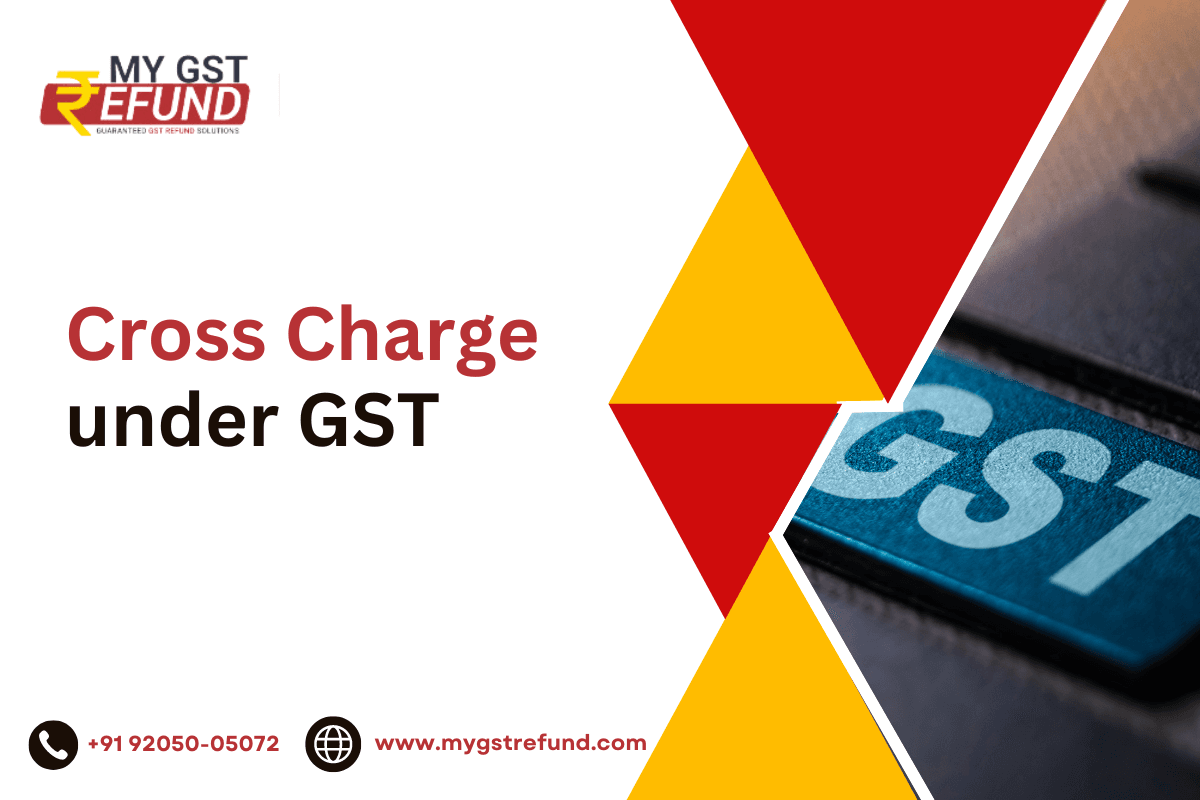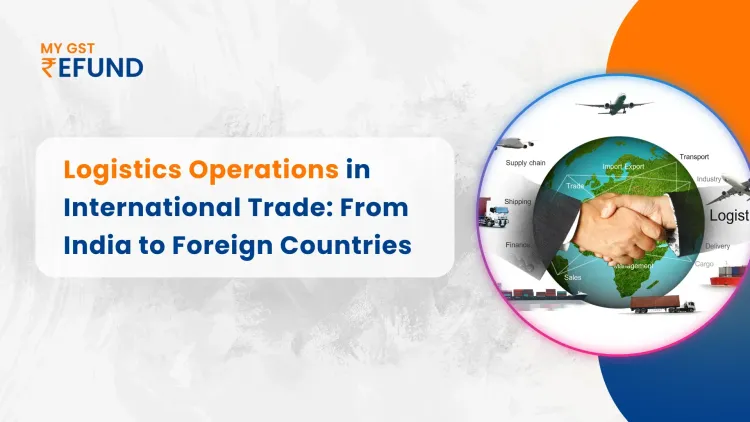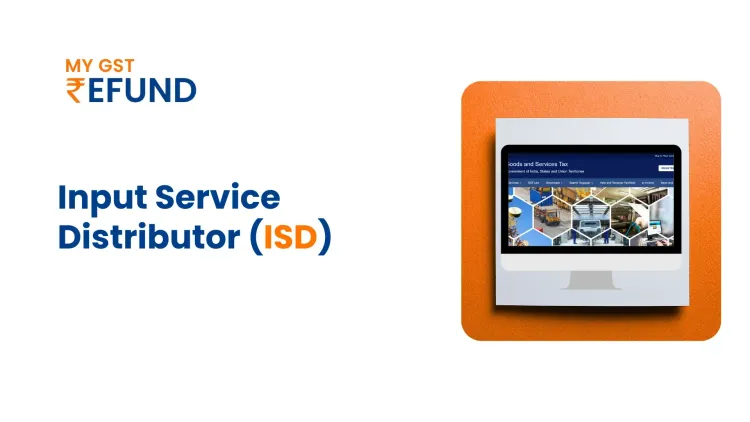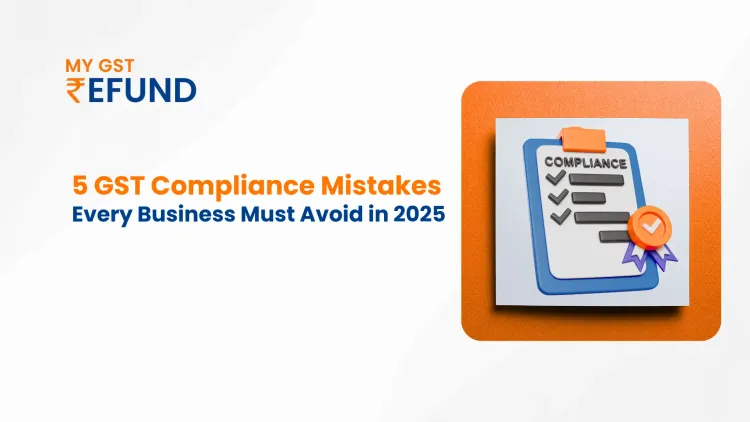Cross Charge Under Goods and Services Tax
Published on: Mon Feb 05 2024
Bio (Reveal/Hide)

Cross Charge under GST: A Comprehensive Guide to ITC
Goods and Service Tax is the destination-based tax wherein, the tax has been charged from the end customer to whom such goods or services or both have been supplied. Increment in the population and competition with regard to cheaper, durable and efficient products, a person needs to comply with the registration of the business in different states engaged in trading, manufacturing etc needs to comply with the formalities and compliance applicable under existing laws of India.
Cross charge under GST is a term which is not elsewhere classified under the provisions of the CGST Act, 2017 which simply means distribution of Input Tax Credit (hereinafter referred as ‘ITC’) from a distinct person (registered under the CGST or relevant SGST Act having same PAN). When a company having registration in more than one states or Union Territory among which one of the registrations is to be considered as a ‘Head Office’ (hereinafter referred as ‘HO’) which is in the business of receipt of goods or services directly from the third party and ITC received on such inward supplies will be distributed to its Branch Office (hereinafter referred to as ‘BO’) through the process called Cross Charge in GST.
The definition of distinct person is specified under Section 25(4) of Central Goods and Services Tax Act, 2017, (hereinafter referred as ‘CGST’ Act, 2017) if an entity is registered in one state r Union territory or more than one state or Union Territory shall be deemed to be treated as distinct person. Further, if such entity is required to supply goods or services to its other branch registered in different state or Union Territory will fall under the purview of Supply.
As defined under Section 7(1)(a) of CGST Act, 2017, Scope of Supply includes all forms of supply of goods or services or both such as sale, transfer, barter, exchange, licence, rental, lease, or disposal made or agreed to be made for a consideration by a person in the course or furtherance of business. If a company is required to transfer goods or services or both to its other branch(s) then in such scenario all such branches shall be registered under the act and the same will fall under the definition of scope of supply as defined in the above said provision.
Considering the provision of Section 7(1) (c), Scope of supply under CGST Act, 2017 wherein it is noted that the activities specified in Schedule I, made or agreed to be made without a consideration will be included in the scope of supply. Entry 2 of Schedule I which includes all such activities to be treated as supply even if made without consideration wherein, it is specified that ‘Supply of goods or services or both between the related person or distinct person as specified in Section 25, when made in the course or furtherance of business.
Read Also: Understanding CGST: Essential Rules and Rates in India
Requisition of Cross Charge under GST:
Cross charge in GST is the process where the HO is cross charging the ITC which is accumulated due to receipt of goods or services or both, to its other branches. Let us understand this situation through an illustration: ‘A’ being a ‘HO’ which is receiving the professional services from a third party named ‘C’ which is attributable to both HO and other BOs. Considering the current provisions of the CGST Act and rules thereunder such HO is required to distribute ITC accumulated while receiving professional services from the third party ‘C’ to its other branches while issuance of tax invoices under Section 31 of the CGST Act, 2017.
If a HO referred to as a main branch of the company is receiving services from the third party which is mainly of the following:
Professional Services
IT Services
Manpower Services
As per the above said services which is procured from the third party to the HO which are directly attributable to the said HO and the BOs, such common ITC can be cross charged to its other BOs as such services are attributable to other branches of the HO.
Need of cross charge arise, when any of its BO is having outward supplies and to set off such supplies with the inward supplies such BO shall have enough ITC accumulated in the Electronic Credit Ledger of such branch which can only be done when such branch is in receipt of services directly from the third party. Being a HO, it is a responsibility of HO to cross charge such ITC accumulated, to its BO which is engaged in outward supplies.
Applicability of Cross Chargein GST
In view of the recent circular issued by CBIC vide Circular No. 199/11/2023-GST dated 17th July, 2023 it is clearly mentioned that ITC in respect a common input services procured from a third party can be made by the HO to a BO through ISD mechanism only if the said input services are attributable to the said BO or have actually been provided to the said BO. Similarly, the HO can issue tax invoices under section 31 of CGST Act to the concerned BOs, in respect of any input services, procured by HO from a third party for on or behalf of a BO, only if the said services have been provided to the concerned BOs1.
Further, if a HO is in receipt of services which is supplied to the HO or directly attributable to HO, then in such scenario, a company can only distribute such ITC through the Input Service Distributor (hereinafter referred as ‘ISD’) mechanism and not through cross charge. Some of the services are mentioned below:
Fabrication Services
Rent and Maintenance Services
Hospitality Services
Security Services
Above are such services which are in receipt by the HO directly from the third party and which is directly attributable to such HO only. If such HO wishes to distribute such ITC to its other BOs, then in such scenario, Company shall move towards with the ISD registration in accordance with Section 24(viii) of CGST Act, 2017.
Also Read: Goods and Services Tax - Everything You Need to Know about GST
Documentation to be maintained while cross-charging in GST:
Every company should ensure that there is a robust documentation to be maintained while cross charging the ITC by their HO, due to the ambiguity between the cross charge and the ISD there is a snag in choosing Cross Charge or ISD while distributing ITC. GST departments are complying with the pro-active approach while issuing notices to the taxpayers for which they may ask for a detailed documentation in support of the services supplied. To overcome from such straining situations, HO shall be maintained at least below mentioned documents while cross charge:
MOU (Memorandum of Understanding) having detailed description of business, percentage, and value, based on which the HO will cross charge common input services which is directly attributable to both HO and BO.
Tax Invoices
Documentary evidence of inward supplies of services which HO has availed (along with the agreement, tax invoice and other evidence(s) proving such supplies as genuine).
Further, the GST authorities may ask for other relevant documents and proofs in regard with the billing of cross charge. Thus, a company shall have all such records in support of such tax invoices issued while distributing ITC to its BO.
Benefits of Cross Charge under GST
Major benefit behind opting for cross charge depends on the complexities under the ISD registration which a company would not like to face in terms of separate return filing process.
Some of the key benefits are mentioned below:
Low compliance burden in terms of no separate registration required under the CGST Act
Include both goods or services or both
No fixed criteria for distribution of ITC
Easy flow for distribution of ITC
No such heavy documentation required as compare to ISD mechanism.
Also Read: Complete Guide to Input Tax Credit under GST
Conclusion
Opting the process for distribution of ITC through two similar channels i.e. Cross Charge and ISD is that complicated task which still not complete enough to be explained before the authorities asking for. Further in the light of the circular no. 199/11/2023-GST which was issued to overcome from the complexities raised to distribute the accumulated ITC through cross charge or ISD, wherein many of the doubts have been clarified through such circular, whereas doubt in opting the practise of cross charge or ISD in distribution of ITC has still some ambiguities and still the professionals have doubt to advice on opting cross charge instead of ISD or ISD instead of Cross Charge.
Related Posts






